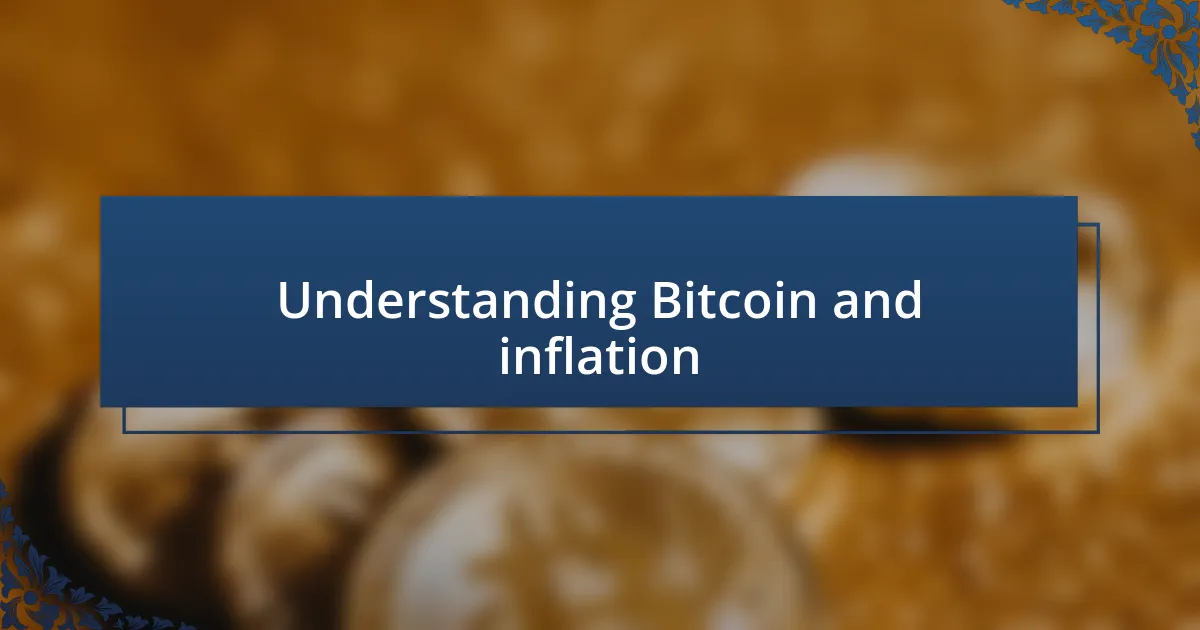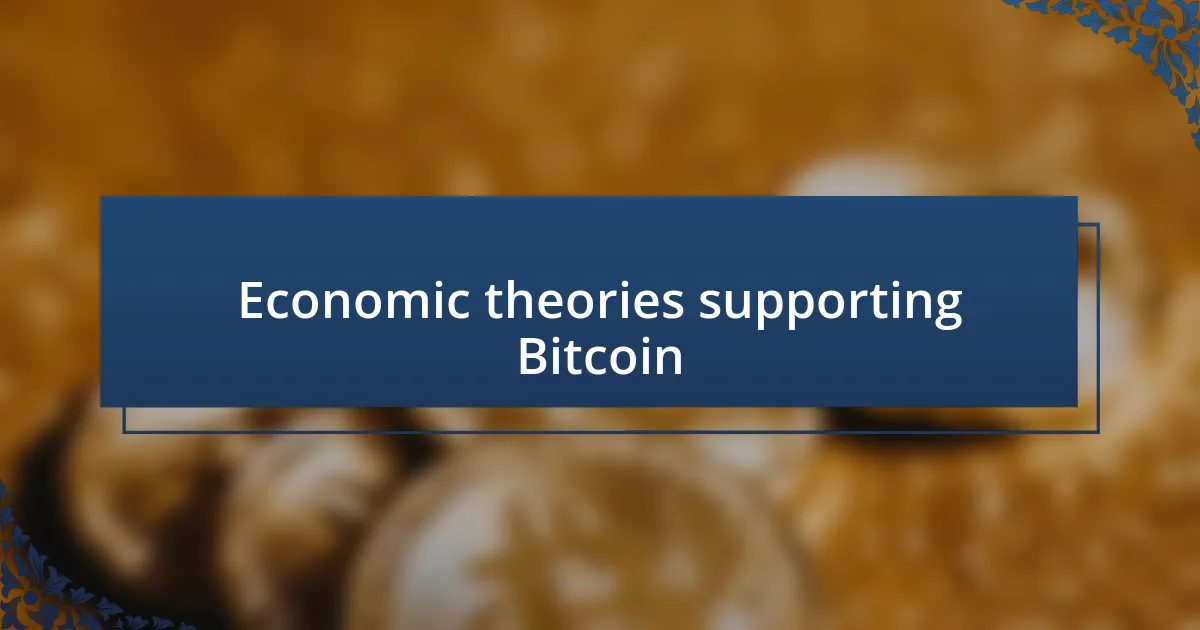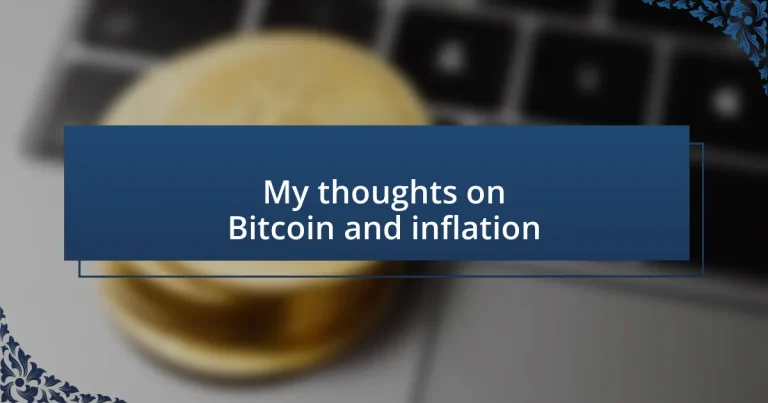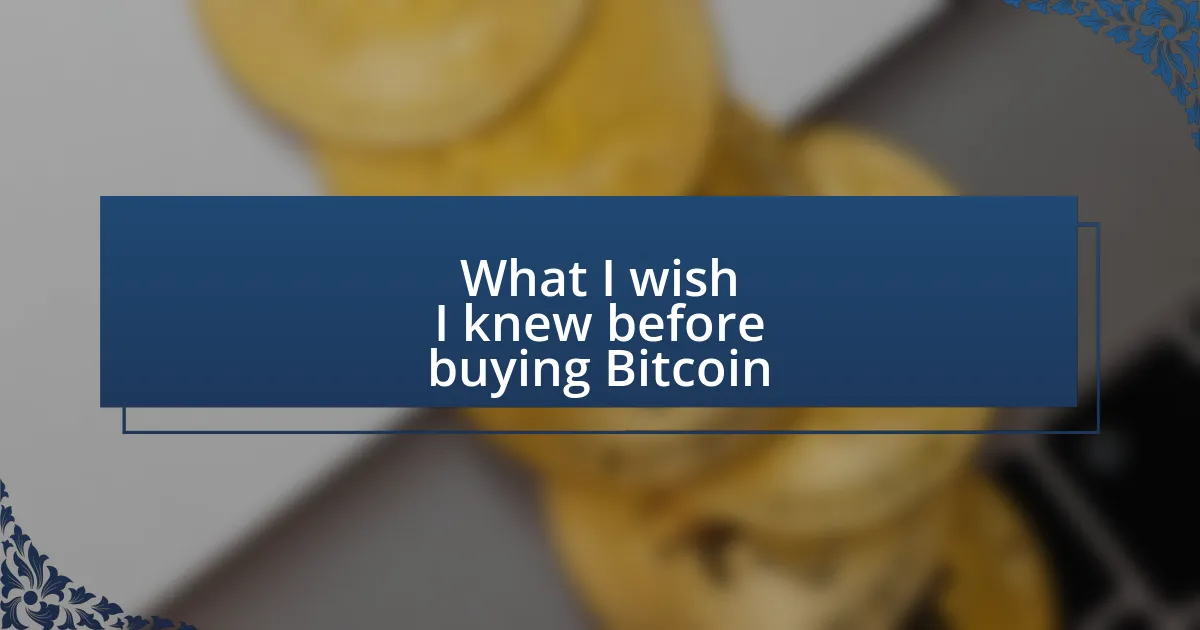Key takeaways:
- Bitcoin is viewed as a potential hedge against inflation due to its fixed supply of 21 million coins, contrasting with the devaluation of traditional currencies.
- Economic theories such as scarcity principle and store of value support Bitcoin’s potential, likening it to precious metals and suggesting its role as ‘digital gold.’
- Practical investment strategies like dollar-cost averaging and diversification can mitigate volatility risks while enhancing investment stability.
- Continuous education on market trends is essential for informed decision-making in Bitcoin investment.

Understanding Bitcoin and inflation
Bitcoin, often seen as a hedge against inflation, intrigues me deeply. When I first invested in Bitcoin, I worried about the relentless rise in living costs, wondering if a decentralized currency could protect my savings. Can you blame me for believing that a fixed supply of 21 million coins might serve as more than just an investment?
Inflation erodes the purchasing power of traditional currencies, a reality I’ve felt firsthand when grocery bills seem to grow each month. In contrast, the programmed scarcity of Bitcoin offers a glimmer of hope during such economic uncertainties. I often find myself questioning if Bitcoin’s increasing adoption might eventually create a safety net for everyday consumers like you and me, enabling us to escape the clutches of decreasing value in fiat currencies.
Reflecting on conversations I’ve had with friends illustrates this dilemma: they view Bitcoin as either a risky gamble or a revolutionary solution to economic woes. Each perspective has merit, but what truly fascinates me is how Bitcoin’s value fluctuates in response to inflationary pressures. As we navigate this financial landscape together, it’s crucial to consider not just the numbers, but the experiences and emotions that come with them.

Economic theories supporting Bitcoin
Economic theories offer a fascinating framework for understanding why Bitcoin might be viewed as a viable hedge against inflation. For instance, the quantity theory of money posits that too much money chasing too few goods leads to inflation. When I think about the unprecedented levels of money printing during crises, I can’t help but reflect on how Bitcoin’s fixed supply could counteract this phenomenon. It’s like having a safety anchor when the seas of traditional finance get stormy.
Here are a few key economic theories supporting Bitcoin’s potential value:
- Scarcity Principle: The limited supply of 21 million Bitcoin creates intrinsic value, akin to precious metals.
- Store of Value: The theory suggests that assets can hold their value over time, similar to gold; Bitcoin is increasingly seen as digital gold.
- Network Effects: As more people adopt Bitcoin, its utility and demand increase, potentially raising its value while providing a buffer against inflation.
When I read about these theories, it resonates with my journey of investing in Bitcoin for stability. It’s reassuring to know I’m not just speculating; I’m aligning with deeper economic principles that might just steer us toward a more secure financial future.

Practical strategies for Bitcoin investment
When considering practical strategies for Bitcoin investment, I find dollar-cost averaging to be incredibly effective. By investing a fixed amount regularly, regardless of the Bitcoin price, I reduce the impact of market volatility. This approach not only alleviates the stress of trying to time the market but also instills a discipline that many investors, including myself, often struggle with.
Diversification is another important aspect. While I primarily focus on Bitcoin, I also consider allocating a small portion of my portfolio to other cryptocurrencies or asset classes. This strategy protects my overall investment from the risks associated with the high volatility of Bitcoin, allowing me to maintain a more stable financial footing.
Finally, educating oneself continuously about market trends and technological developments is crucial. I always make it a point to read recent articles and analyses. This habit not only enhances my understanding but also grows my confidence in my investment decisions. Investing is a journey, and staying informed allows me to navigate this exciting yet unpredictable path with greater assurance.





